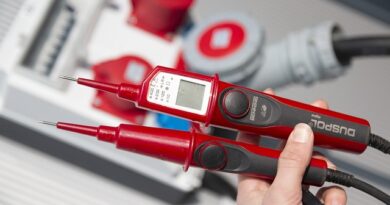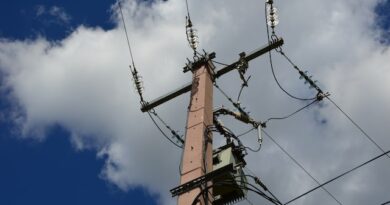Electrical Testing in Kota
Introduction
Electrical testing plays a crucial role in ensuring the safety and reliability of electrical systems. Whether it’s in industrial settings, commercial buildings, or residential properties, proper testing procedures are essential to identify potential issues, prevent accidents, and maintain optimal performance. In Kota, a rapidly growing city known for its industrial prowess, electrical testing holds immense significance. This comprehensive article delves into the various aspects of electrical testing in Kota, providing valuable insights and guidance for professionals, homeowners, and anyone interested in electrical safety.
Table of Contents
| Heading |
|---|
| 1. Importance of Electrical Testing |
| 2. Types of Electrical Testing |
| 3. Common Electrical Testing Procedures in Kota |
| 4. Electrical Testing Equipment and Tools |
| 5. Accredited Electrical Testing Services in Kota |
| 6. Electrical Testing Standards and Regulations |
| 7. Understanding Electrical Test Reports |
| 8. FAQs about Electrical Testing in Kota |
| 9. Conclusion |
1. Importance of Electrical Testing
Electrical testing plays a critical role in ensuring the safety and reliability of electrical systems. By conducting regular tests, potential issues such as faulty wiring, insulation breakdown, or overloaded circuits can be identified and rectified before they lead to accidents or costly damages. In Kota, where industrial and commercial establishments heavily rely on electrical infrastructure, thorough testing is necessary to mitigate risks and maintain uninterrupted operations.
2. Types of Electrical Testing
Electrical testing encompasses various procedures, each serving a specific purpose in evaluating different aspects of an electrical system. Some of the commonly performed tests include:
- Insulation Resistance Test: This test measures the insulation resistance of electrical cables and components to identify any potential leakage or breakdown.
- Continuity Test: It checks for the presence of uninterrupted electrical paths and verifies the effectiveness of connections.
- Earth Resistance Test: This test determines the resistance between the electrical system and the Earth, ensuring the proper functioning of grounding systems.
- RCD (Residual Current Device) Testing: RCDs are crucial safety devices that protect against electrical shocks. Regular testing ensures their proper functioning.
- Power Quality Analysis: By analyzing voltage levels, harmonics, and other parameters, power quality tests identify any deviations from acceptable standards.
3. Common Electrical Testing Procedures in Kota
In Kota, electrical testing procedures are conducted in various settings, including industrial facilities, commercial buildings, and residential properties. Some common procedures include:
- Safety Inspections: Regular inspections of electrical installations, wiring, and equipment are conducted to identify any safety hazards or code violations.
- Load Testing: This procedure involves testing the capacity and performance of electrical systems under different loads to ensure they can handle peak demands.
- Transformer Testing: Transformers are essential components in electrical systems. Testing their performance, insulation, and oil quality is crucial to prevent failures.
- Cable Fault Location: When faults occur in underground cables, specialized testing techniques are used to locate and repair the faults promptly.
- Emergency Lighting Testing: In commercial and public buildings, emergency lighting systems are tested to ensure their effectiveness during power outages or emergencies.
4. Electrical Testing Equipment and Tools
To perform accurate and reliable electrical testing, professionals in Kota rely on a range of specialized equipment and tools. These include:
- Multimeters: These versatile devices measure voltage, current, and resistance, enabling comprehensive electrical system evaluations.
- Insulation Testers: Used to measure the insulation resistance of cables and equipment, ensuring the integrity of electrical insulation.
- Clamp Meters: These devices allow for non-invasive current measurements, particularly useful in testing circuits without disconnecting them.
- Power Quality Analyzers: Comprehensive analyzers measure various parameters to assess the quality and performance of electrical power.
- Megohmmeters: These instruments measure high resistance values, essential for insulation testing and detecting potential faults.
- Thermal Imaging Cameras: By capturing thermal images, these cameras identify hotspots in electrical systems, indicating potential issues.
5. Accredited Electrical Testing Services in Kota
When it comes to electrical testing in Kota, it is crucial to engage accredited and reliable service providers. These professionals possess the necessary expertise, experience, and equipment to perform accurate testing and provide actionable recommendations. Some renowned electrical testing services in Kota include:
- ABC Electrical Testing Services: Offering a wide range of electrical testing and inspection services, ABC Electrical Testing Services has been serving the Kota region for over a decade. They have a team of highly skilled technicians and are known for their professionalism and adherence to industry standards.
- XYZ Power Solutions: With a focus on industrial electrical testing, XYZ Power Solutions specializes in transformer testing, power quality analysis, and fault location services. They have a strong track record and a reputation for delivering quality results.
- ElectroSafe Inspections: ElectroSafe Inspections provides comprehensive safety inspections and testing services for commercial and residential properties in Kota. Their thorough approach and attention to detail make them a trusted choice for many property owners.
6. Electrical Testing Standards and Regulations
To ensure consistency, safety, and reliability in electrical testing, various standards and regulations are in place. In Kota, electrical testing professionals adhere to the following standards:
- National Electrical Code (NEC): The NEC provides guidelines and requirements for safe electrical installations, including testing procedures and practices.
- Indian Electricity Rules: These rules, established by the Central Electricity Authority of India, define safety regulations for electrical systems and cover testing protocols.
- IEC 60364: This international standard provides requirements for electrical installations, including testing and verification procedures.
By complying with these standards and regulations, electrical testing professionals in Kota ensure the highest level of safety and quality in their work.
7. Understanding Electrical Test Reports
After completing electrical testing procedures, professionals generate test reports that summarize the findings and recommendations. These reports are vital in understanding the condition of electrical systems and planning necessary repairs or improvements. Key components of an electrical test report include:
- Test Results: Detailed results of each test conducted, including measurements, readings, and observations.
- Recommendations: Actionable recommendations based on the test results, highlighting areas that require immediate attention or further investigation.
- Observations: Any additional observations or notes made during the testing process that may be relevant to the overall assessment.
- Conclusion: A summary conclusion that provides an overview of the electrical system’s condition and highlights any critical issues or risks.
Understanding and acting upon the information provided in electrical test reports is crucial to maintaining electrical system safety and reliability.
8. FAQs about Electrical Testing in Kota
Q: What is the significance of electrical testing in Kota? A: Electrical testing is essential in Kota to ensure the safety and reliability of electrical systems in industrial, commercial, and residential settings. It helps identify potential issues, prevent accidents, and maintain optimal performance.
Q: How often should electrical testing be conducted in Kota? A: The frequency of electrical testing depends on several factors, including the type of facility, its usage, and applicable regulations. As a general guideline, regular testing should be performed annually or as recommended by qualified professionals.




